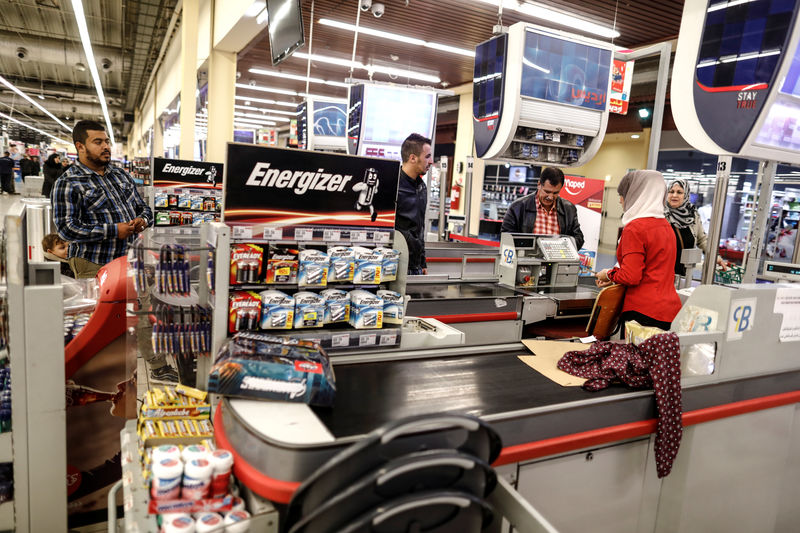By Hamid Ould Ahmed
ALGIERS (Reuters) - Mansour and Nassima used to buy Swiss chocolate for their daughter. But in the past few days it has disappeared from the shelves as Algeria's government implements a ban on imports of hundreds of products in an effort to cut the trade deficit.
The restrictions will encourage domestic production, shielding it from foreign competition, officials say.
But local firms including drinks producers and potters say shortages of raw materials are putting their businesses at risk.
Algeria's non-energy sector remains undeveloped, meaning most goods consumed by its 40 million-strong people are shipped from abroad. Oil and gas account for 60 percent of the state budget.
At the start of this year, authorities banned the import of 851 products including foodstuffs and some raw materials in a bid to address a gaping trade deficit that widened as energy earnings almosty halved since mid-2014.
"Several products have disappeared. We're talking about luxury products," said Mansour, as he browsed the Ardis mall in the capital Algiers with his wife and six-year-old daughter.
"Most prices have gone up, even those of national products, due to the lack of competition," he said.
"Today, I can't see some of the goods I used to buy on the shelves, including good quality chocolate for my daughter," said Nassima.
Ardis, which opened its doors in 2012 and is the largest mall in the country, attracts flocks of consumers every day because of the wide range of local and imported consumer goods it stocks.
That range has now been reduced, though Walid Allouni, the mall's store manager, played down the change.
"The import suspension is a problem for us, but this measure has affected only about 20 percent of the products we sell here," he said.
"Some prices have risen because demand exceeds supply. I think this is a good opportunity to strengthen and encourage domestic output."
RESTRICTIONS
In the past two years Algeria imposed a licensing system to reduce its imports bill, but that measure fell short of expectations. The value of purchases from abroad stood at $45.95 billion in 2017, down just 2.4 percent from the previous year.
China, which has boosted its economic presence across North Africa, is Algeria's main supplier, followed by France and Italy.
Despite past promises to support economic diversification, local firms have struggled, hampered by bureaucracy and insufficient foreign investment that deprived them of much-needed technology.
The restrictions may only add to pressure on some firms, with managers voicing concern about a possible collapse of their business because of declining stocks of raw materials.
On Sunday, the Association of Algerian Ceramicists published an open letter to Prime Minister Ahmed Ouyahia, urging him to ease limits on the import of the two main materials used in the industry. Domestic ceramics production falls short of demand, with products imported mainly from Spain and China filling the gap.
The situation, it warned, could "cripple the sector."
Shortages of raw materials risk spreading to other sectors unless the government finds alternatives to the import suspension, businessmen say.
"Some of our companies import 30 percent of their input needs," said Ali Hamani, the head of Algerian Association for Drinks Producers, which includes 40 firms. "There are firms that risk closing."
Trade minister Mohamed Benmeradi said firms affected by the ban were "totally protected", state news agency APS said. He did not elaborate.
